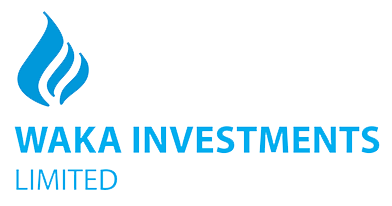When you are looking for a new space for your office or business, there are certain terms and items you should be aware of. If you are new to commercial real estate, there is usually be a brief learning curve. For example, if you are comparing rental rates among buildings, it is common for tenants to calculate their budget based solely on rentable area (square feet). However, there are many additional costs that must be factored in before you choose an office that makes economic sense for your business. If you are relocating, costs associated with moving can be extremely high on top of first month’s rent. If you’re a new business, the last thing you want is to be stuck in a long-term lease paying more than you can afford. Below are five hidden costs office tenants should be aware of when calculating exactly how much you will pay and how to avoid them.
1. Know How the Base Year Rate is Calculated
The first year of your lease is considered your base year, during which your rental rates will not go up. Many landlords use this year going forward as a baseline to compare and calculate your day-to-day operating expenses. If they foresee their operating costs rising for the next year, your rates will increase. It is important to understand how your landlord calculates one year and if possible, negotiate to have 12 months from the day you sign the lease, instead of the typical calendar year. For example, if you sign the lease in October but the landlord’s base year ends December. 31, your rate will go up after three months.
2. Compare Trends in Operating Costs for Similar Buildings
An increase in operating costs is to be expected for a long-term lease. However, when searching for the perfect office space, do your homework to ensure what you will pay in future years is comparable to other spaces around town. Similar buildings will have about the same percentage increase in operating costs year over year, so if one space is significantly higher, request for reasons why this is so. It is understandable for rates to rise due to cosmetic or mechanical upgrades, but if past tenant’s rates doubled every year and the rates in similar office blocks are significantly less, it is worth looking into.
3. Research on the associated Parking Costs
Parking fees especially in Nairobi can be a very costly monthly expense. Depending on where the building is located, you could have access to a limited number of reserved spots, pay a monthly fee for a parking garage or be left to figure out parking on your own. Ensure that you ask questions about parking before you sign your lease. Your landlord might even know of neighboring spots you can use.
4. Understand the Type of Lease You’re Signing
Typically for office buildings, the tenant will sign a full-service gross lease where all costs are included. You could, however, encounter a modified gross lease, where the tenant pays a base rent plus one or two additional items, such as electricity or Internet. It is therefore important to know which type of lease you’re signing, as the difference could be in several thousand shillings per month. Be wary of a modified gross leased office building that has a very low rate per square feet as you could make up for that in expensive monthly utility bills. In contrast, larger office buildings could save you money in a modified gross lease by spreading expenses or bills among many tenants.
5. Capital Improvements Counted as Operating Expenses
As a tenant, you should have your legal counsel negotiate to exclude certain items from monthly operating costs in your lease. Capital improvements to the building such as cosmetic or mechanical upgrades that are not required by law but reduce overall operating costs or result in greater efficiencies of the building, should not be included in day-to-day operating expenses for the tenant. Protection against such instances are often not included in the lease, therefore the tenant is stuck paying extra shillings upgrades that solely benefit the landlord by adding long-term value to the property. It is therefore key to have your lawyer negotiate the lease on your behalf to cushion you against this costs.
Therefore, as a best-practice before signing any type of lease, be sure to do your homework on past and future projections for unforeseen costs. Don’t sign anything you don’t understand; if you’re unsure about any terms or clauses, seek legal counsel. Once the negotiations are done and the papers are signed, you can focus on moving into your new space and running

